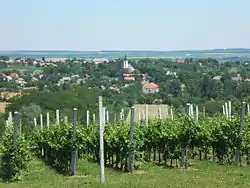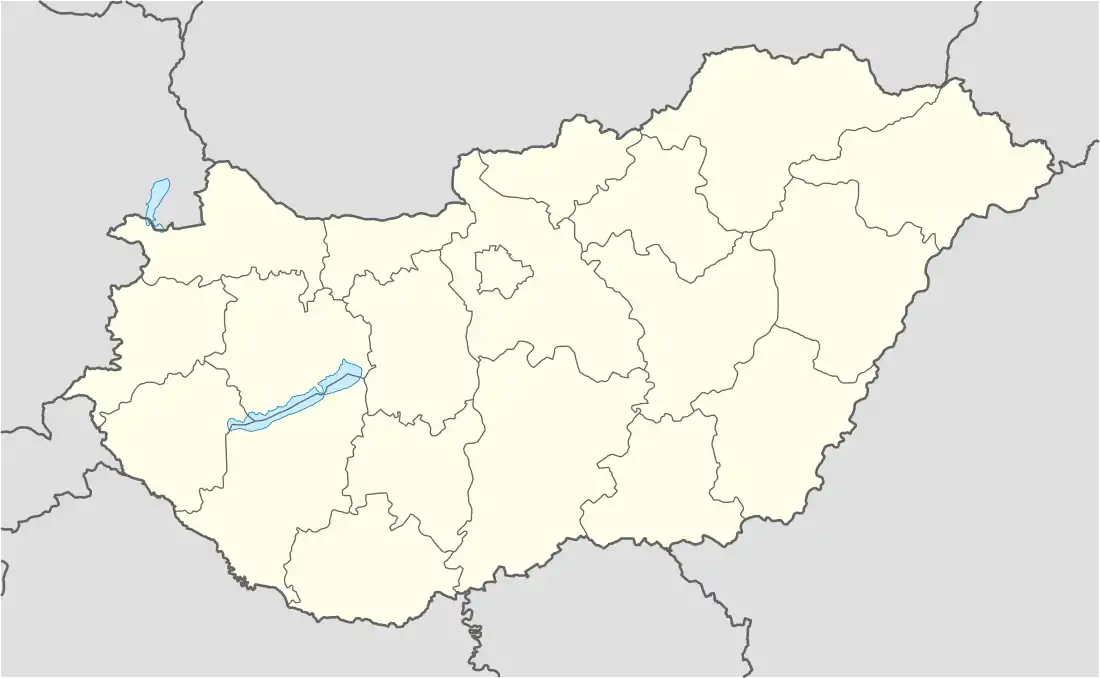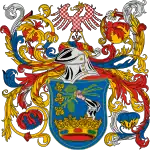Karád
Karadin (in Croatian) | |
|---|---|
Village | |
 View of the village from the vineyard hill | |
 Coat of arms | |
 Karád Location of Karád | |
| Coordinates: 46°41′31″N 17°50′36″E / 46.69194°N 17.84329°E | |
| Country | |
| Region | Southern Transdanubia |
| County | Somogy |
| District | Fonyód |
| RC Diocese | Kaposvár |
| Area | |
| • Total | 52.38 km2 (20.22 sq mi) |
| Population (2017) | |
| • Total | 1,489[1] |
| Demonym | karádi |
| Time zone | UTC+1 (CET) |
| • Summer (DST) | UTC+2 (CEST) |
| Postal code | 8676 |
| Area code | (+36) 84 |
| Patron Saint | Ladislaus I |
| NUTS 3 code | HU232 |
| MP | Mihály Witzmann (Fidesz) |
| Website | Karád Online |
Karád (Croatian: Karadin) is a village in Somogy county, Hungary.
The settlement is part of the Balatonboglár wine region.[2]
Etymology
Its name derives from the Turkish person name, Kara (Hungarian: fekete, English: black). He could be the first owner of the settlement. The same applies to Kára.[3]
History
According to László Szita the settlement was completely Hungarian in the 18th century.[4]
Culture
The Hungarian folk songs Fót hátán fót, egy üngöm vót (in 1938) and A karádi faluvégen (in 1933) were collected in Karád by Gyula Dávid as well as Rén a bárány (in 1953) by László Vikár.
External links
References
This article is issued from Wikipedia. The text is licensed under Creative Commons - Attribution - Sharealike. Additional terms may apply for the media files.

